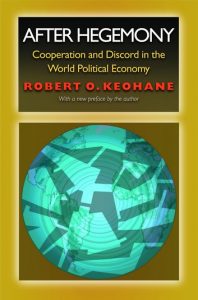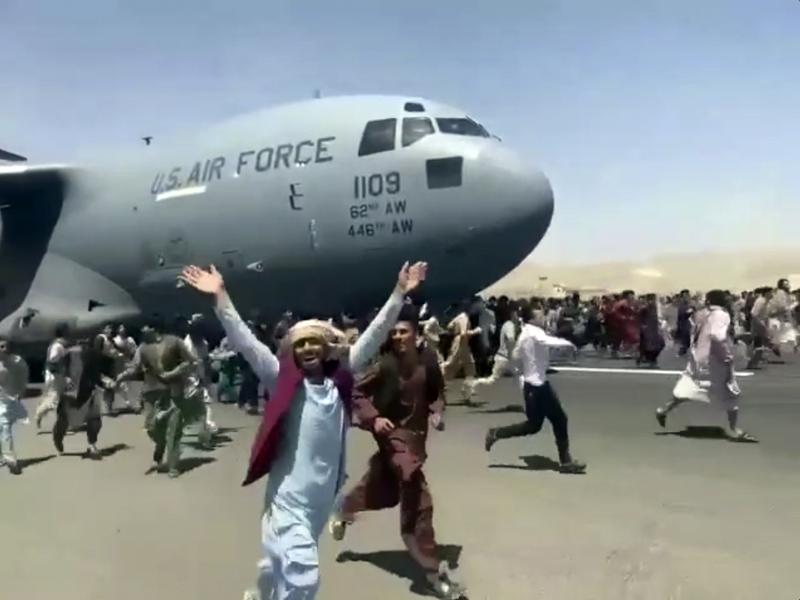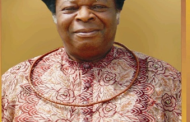The American ruling class is, by considerable consensus, one if not the most successful ruling class in human history. This assertion rests on two counts. First is constructing and successfully naturalising a binding narrative of the American project. The narrative that, whoever you might be, you are welcome to the ‘New World’ where you can rise from ‘grass to grace’ if you pull yourself by the bootstrap. A narrative such as this is not about whether it is true or false but whether it has been promoted to a consensus. The first success is the way this narrative has been so bought into by the average American until its recent destabilisation by the ‘Black Lives Matter’ counter-narrative, for example.
 Coupled with its other components such as America as a ‘city on the hill’ with responsibility to beam the light of republicanism across the world, most times crudely or violently, the American elite have taken a former colony from there to the status of super power, irrespective of how they did this. Inability to imagine their countries on such a grand scale beyond their tribal prisms can be said to be part of the problem in Africa, imperialism or no imperialism.
Coupled with its other components such as America as a ‘city on the hill’ with responsibility to beam the light of republicanism across the world, most times crudely or violently, the American elite have taken a former colony from there to the status of super power, irrespective of how they did this. Inability to imagine their countries on such a grand scale beyond their tribal prisms can be said to be part of the problem in Africa, imperialism or no imperialism.
Aided by popular culture, the CIA and the American military, the US has created and strutted the world almost completely in its own image since 1945, notwithstanding the blowbacks from its tendency to mirror image reality. Although debate on ‘Declinism’ has been on since the 1980s, it was as if the American sun could shine forever and that Paul Kennedy was talking rubbish.
This is the two senses in which the American ruling class is a classical class for itself. The fraction of it that scholars such as Peter Gowan call the ‘business democrats’ in his 2006 essay, “Triumphing Toward International Disaster” was able to construct and impose a narrative of nationhood that consolidated the home front as well as transform the state into an empire exactly in the scale anticipated and verbalized by its founding fathers.
Then came the 1990s and America’s fear of peer competition as well as a seeming desperation in tandem with Warwick University’s Alexandra Homolar’s essay “How to Last Alone at the Top: US Strategic Planning for the Unipolar Era”. It is this fear as played upon by the ‘Neocons’ that is argued to underpin the adventures in Afghanistan, Iraq and, if care were not taken, Iran.
 As all students of International Relations know, war is one of the surest ways of bringing a nation to its knees. What appears to have played out is that a great power such as the US is not an exception to this. Even those who would not buy that would still have Paul Kennedy’s thesis about the risk of overstretch inherent in being a great power. After all, the book containing this analogy had to be re-worked/updated in relation to the United States. That is Kennedy’s book, The Rise and Fall of Great Powers: Economic Change and Military Conflict From 1500 to 2000, published originally in 1987, three years after Keohane’s. It would not be a mischievous argument to suggest that Robert Keohane was issuing similar warning in his masterful After Hegemony. Although the language of the two books is very, very different, the interpretive stretch of equating prediction with abetting the risk inherent in being a great power puts both Kennedy and Keohane in the same club of suspects, the only difference being that there is no report that Osama bin Laden read Keohane’s book at all as opposed to the speculation that Kennedy’s book was his holy book.
As all students of International Relations know, war is one of the surest ways of bringing a nation to its knees. What appears to have played out is that a great power such as the US is not an exception to this. Even those who would not buy that would still have Paul Kennedy’s thesis about the risk of overstretch inherent in being a great power. After all, the book containing this analogy had to be re-worked/updated in relation to the United States. That is Kennedy’s book, The Rise and Fall of Great Powers: Economic Change and Military Conflict From 1500 to 2000, published originally in 1987, three years after Keohane’s. It would not be a mischievous argument to suggest that Robert Keohane was issuing similar warning in his masterful After Hegemony. Although the language of the two books is very, very different, the interpretive stretch of equating prediction with abetting the risk inherent in being a great power puts both Kennedy and Keohane in the same club of suspects, the only difference being that there is no report that Osama bin Laden read Keohane’s book at all as opposed to the speculation that Kennedy’s book was his holy book.
Whichever way it goes, it seems safe to conclude that all hegemonic constructs live on borrowed times. Otherwise, why did Bush call 9/11 an act of war instead of calling it a criminal act which was what it is? Calling it an act of war seemed a language game that made self-defense logical and warranted. Yea, a great power humiliated with an attack on homeland that it did not detect was bound to be provocative and made attacking Afghanistan reasonable. But as students of strategy would say, planning an entry without corresponding exit plan is useless. The error playing out in Afghanistan in the past few days suggests lack of a withdrawal strategy in the sense everything that can be called achievement in that adventure has been turned over to the Taliban.
Husain Haqqani, a former Pakistani Ambassador to the United States is suggesting in a July 22, 2021 article in Foreign Affairs that Pakistan aided the Taliban, something he is sure Pakistan would regret soon. Might this diplomat be suggesting that the Americans did not anticipate such reality, not just from Pakistan but many other actors?
Whether Pakistan or any other actors aided the Taliban or not, it is America’s decline that is the subject matter of the Afghanistan disaster – the inability of a great power to defeat a small army and impose its will, thereby adding the US to Britain and the defunct USSR in the club of failures in ‘nation building’ and democracy promotion in Afghanistan. The diverse dimensions – positive and negative for both America and for the world – will be unfolding for a long time to come. Coinciding with ‘militant particularism’ at home, this disaster has made the US a site to watch even as attractive or inviting as its universities and popular culture.




























